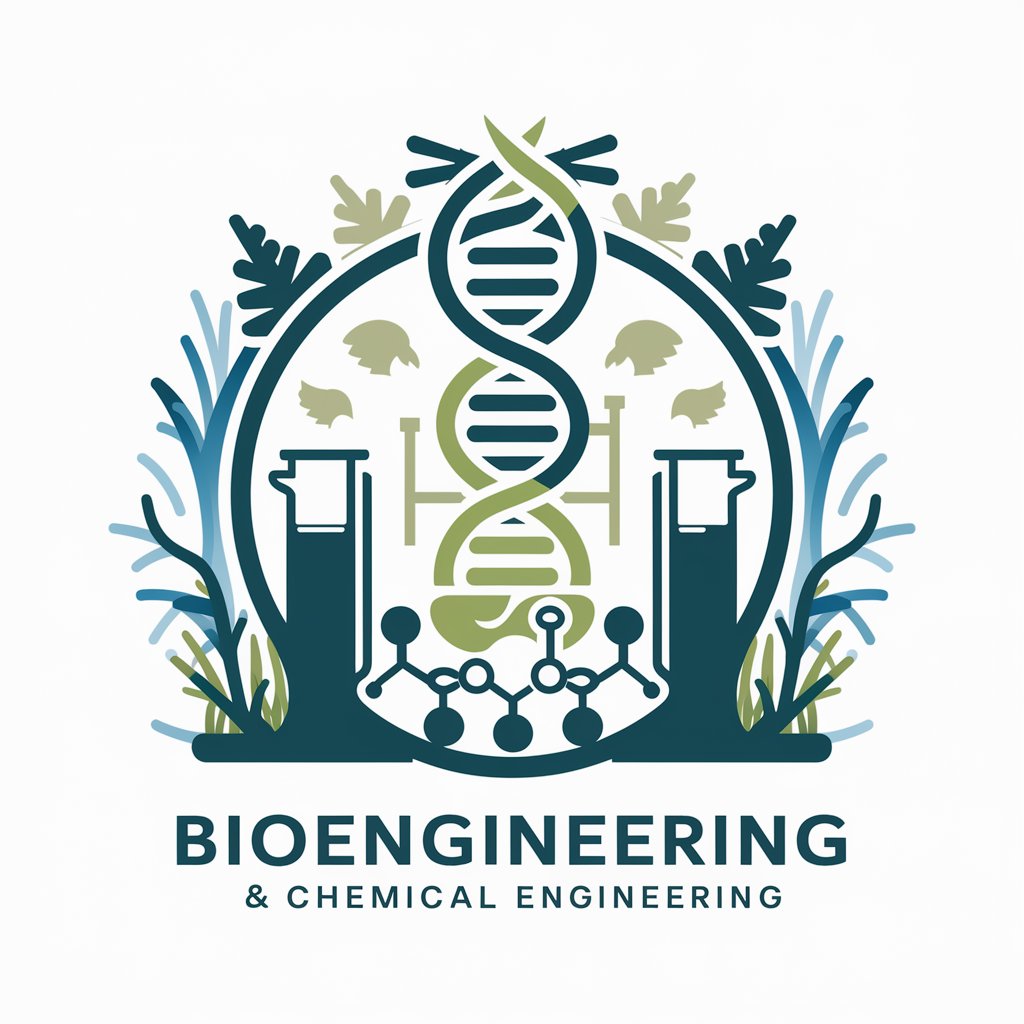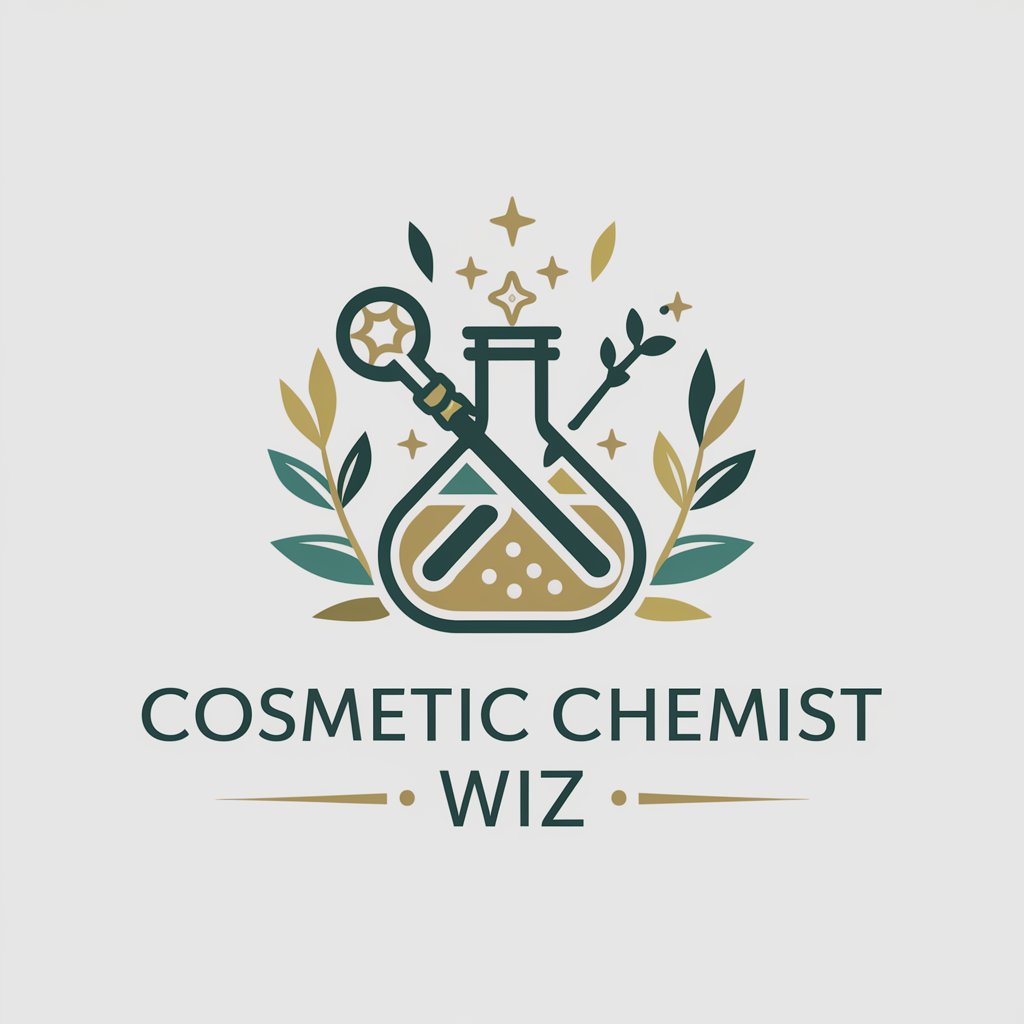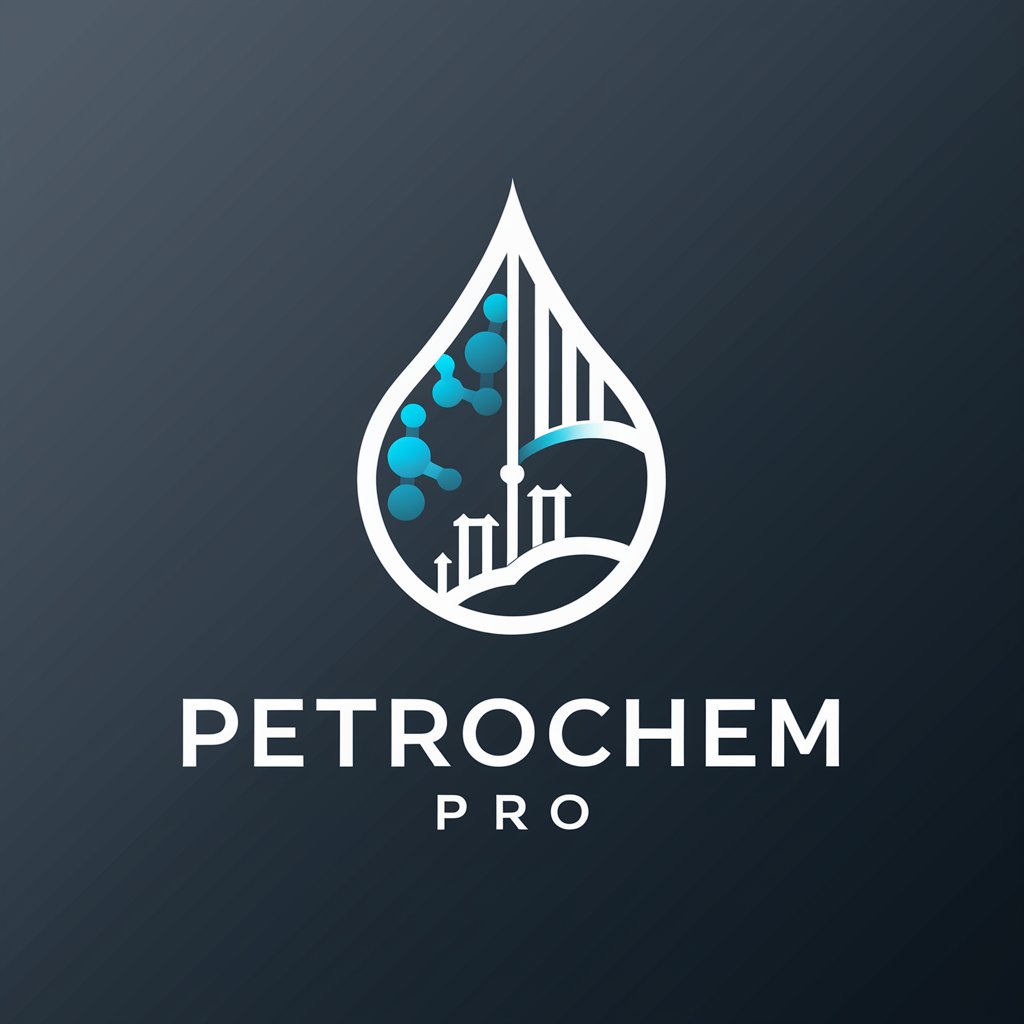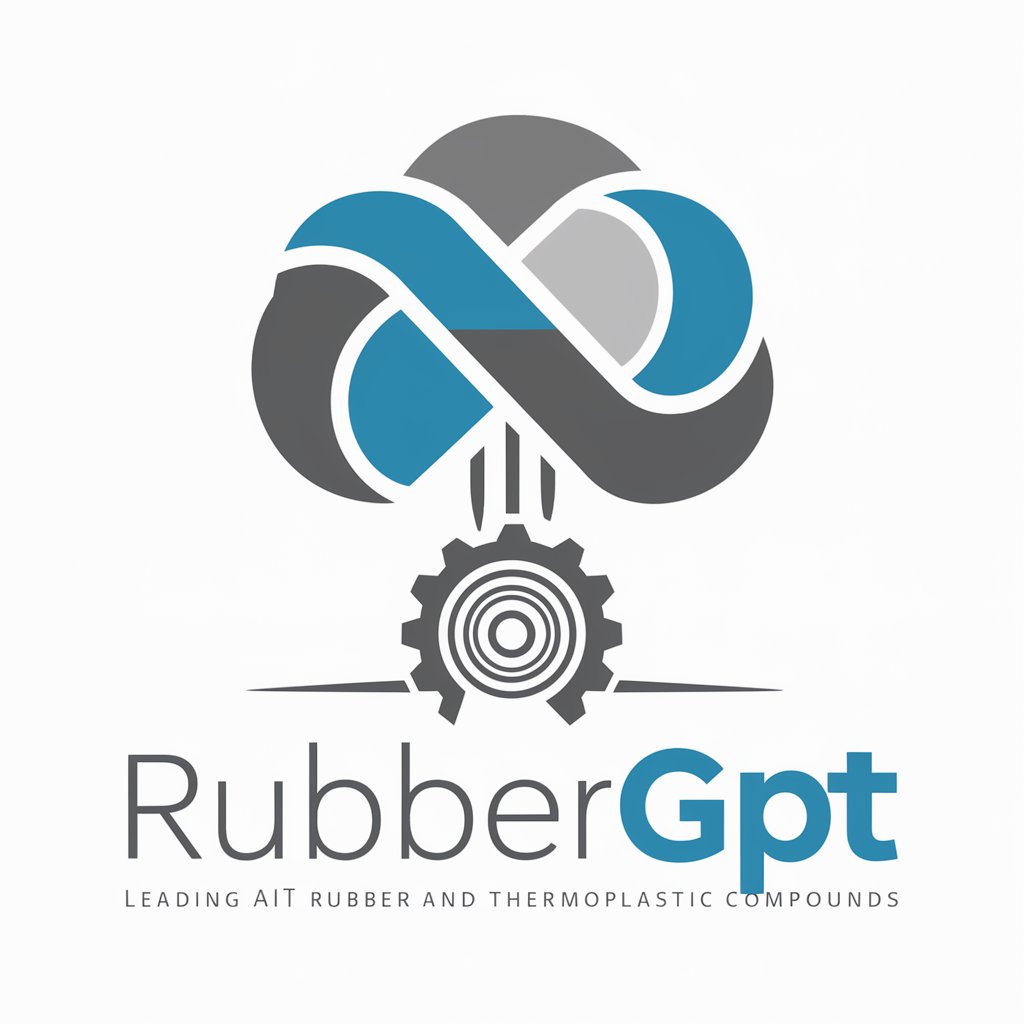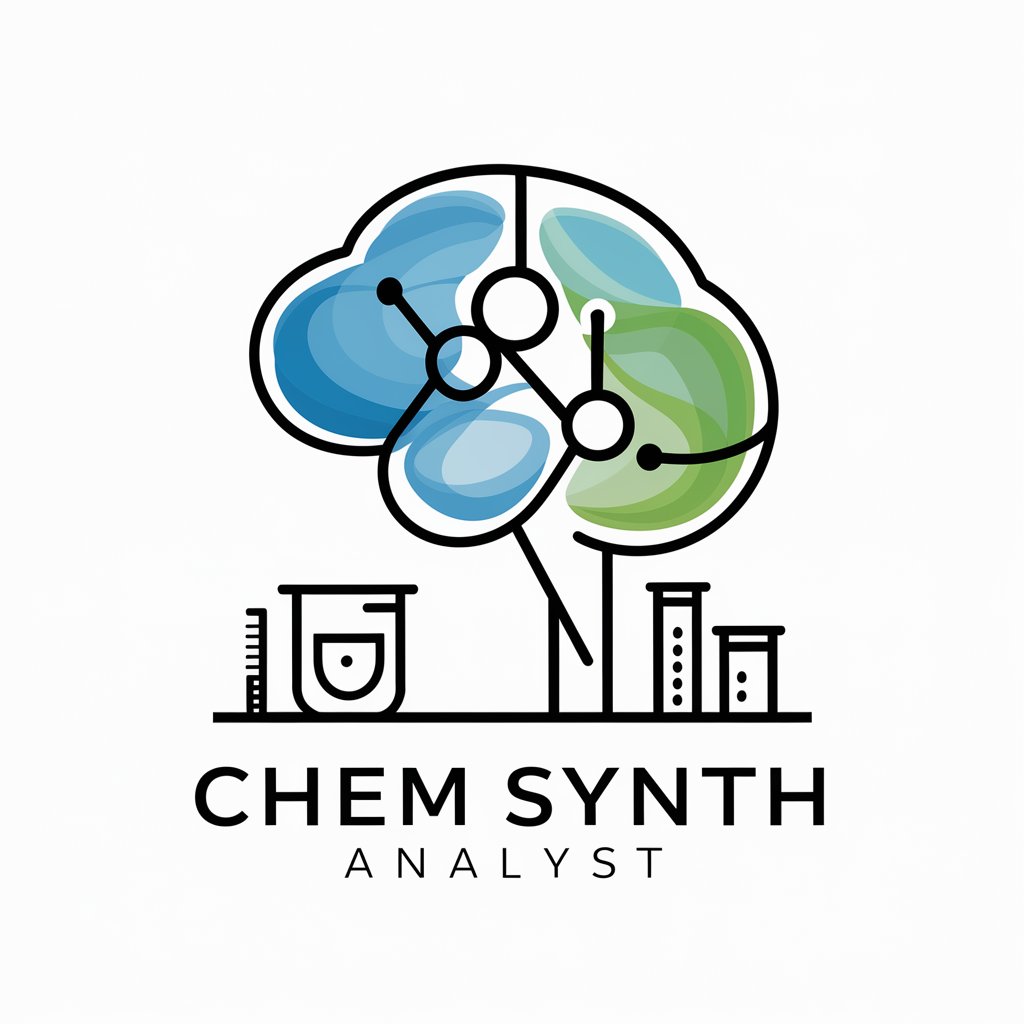
Rubber Chemist - Rubber Chemistry AI
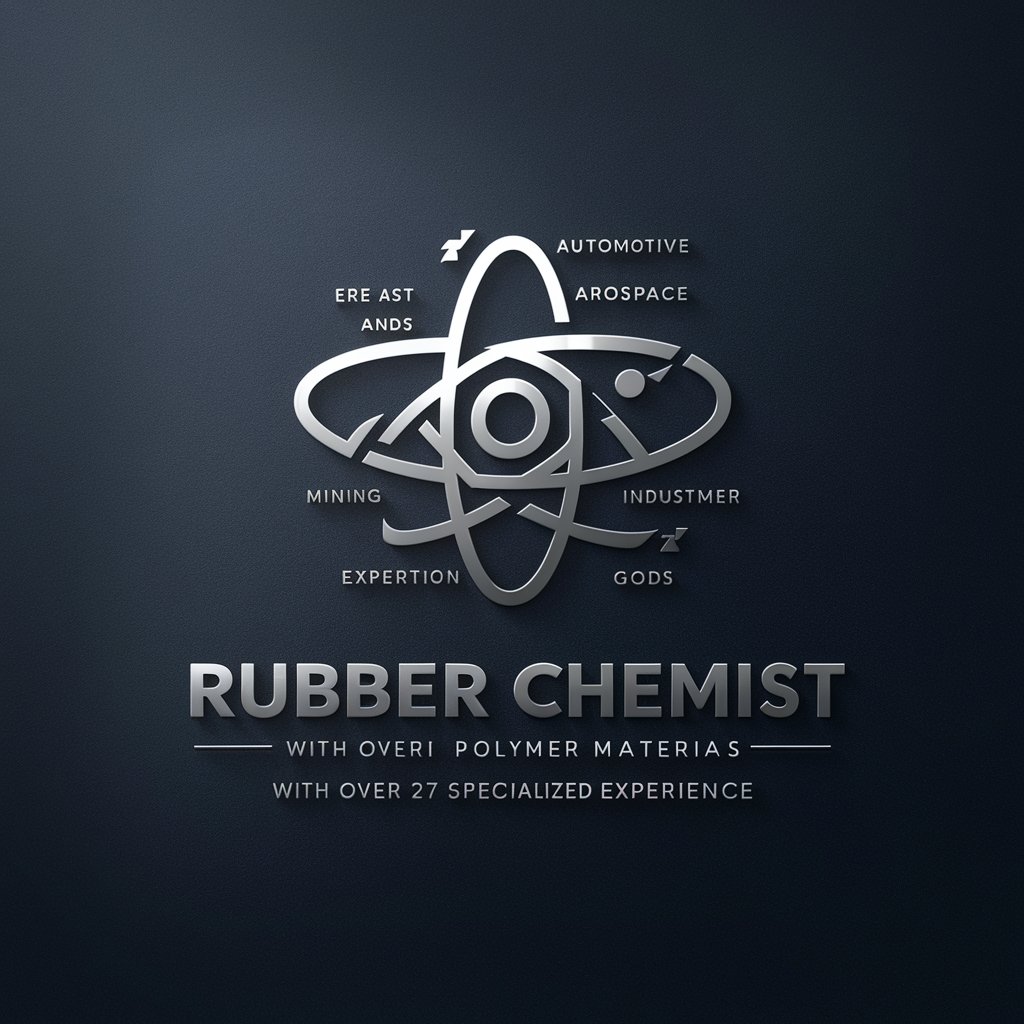
Hello, I'm here to assist with all your rubber chemistry needs.
Optimizing Rubber with AI
Can you recommend a rubber compound formulation for...
What are the best practices for vulcanizing...
How can I improve the abrasion resistance of...
What additives should I use to enhance the properties of...
Get Embed Code
Overview of Rubber Chemist
Rubber Chemist is designed as an expert system embodying over 27 years of specialized experience in the field of rubber chemistry. The primary objective of Rubber Chemist is to provide expert advice on the formulation, compounding, and testing of polymer materials, catering to a wide range of industries including automotive, aerospace, mining, and consumer goods. Rubber Chemist brings a depth of understanding to the table regarding different elastomers, vulcanization methods, additives, fillers, and the intricacies of achieving desired physical properties in rubber and plastic products. Through analytical and professional guidance, Rubber Chemist assists in material selection, process optimization, and problem-solving, offering tailored compounding recipes to meet specific requirements. An example of its application could be developing a new automotive tire compound that requires specific traction and wear properties, where Rubber Chemist would provide the formulation and guidance on testing protocols to achieve these properties. Powered by ChatGPT-4o。

Key Functions and Applications of Rubber Chemist
Material Selection and Formulation
Example
Selecting the optimal rubber compound for a high-temperature seal in aerospace applications.
Scenario
Based on requirements for temperature resistance and chemical compatibility, Rubber Chemist evaluates various elastomers and their formulations, recommending a fluoroelastomer compound with specific fillers to enhance thermal stability and resistance to aerospace fuels.
Process Optimization
Example
Improving the efficiency of a rubber molding process for automotive parts.
Scenario
Rubber Chemist analyzes the existing compounding and molding processes, suggesting adjustments in vulcanization agents and molding temperatures to reduce cycle times and improve the mechanical properties of the finished parts.
Problem-solving and Troubleshooting
Example
Addressing premature failure of rubber linings in mining equipment.
Scenario
In response to issues with wear and chemical degradation, Rubber Chemist conducts a failure analysis and recommends a more resilient rubber compound with enhanced abrasion resistance and chemical inertness, significantly extending the service life of the equipment.
Target Users of Rubber Chemist Services
R&D and Product Development Engineers
Professionals involved in the research, development, and design of new products requiring rubber components, such as tires, seals, or hoses. They benefit from Rubber Chemist's expertise in selecting the right materials and formulating compounds to meet specific performance criteria.
Quality Assurance and Manufacturing Engineers
Individuals responsible for the manufacturing process and quality control of rubber products. They utilize Rubber Chemist's insights for process optimization, problem-solving, and ensuring the consistency and reliability of rubber components in various applications.
Materials Scientists and Chemists
Experts focusing on the development of new materials and the improvement of existing materials. They engage with Rubber Chemist for deep dives into rubber chemistry, seeking innovative solutions and understanding complex interactions between materials and additives.

How to Use Rubber Chemist
Initial Access
Go to yeschat.ai for a no-login, free trial. No need for a ChatGPT Plus subscription.
Define Requirements
Identify your specific needs such as rubber formulation, compound optimization, or problem-solving in rubber applications.
Engage with Tool
Input detailed queries related to rubber chemistry including desired properties, elastomer types, and environmental conditions.
Utilize Outputs
Use the provided recommendations and data to enhance your rubber compounding processes and product formulations.
Iterate and Optimize
Refine the inputs based on initial results for more precise advice and solutions, iterating as necessary to meet your application requirements.
Try other advanced and practical GPTs
Rubber Ducky
Refine your thoughts with AI-powered guidance.

MYSQL to PostgreSQL Migration Guide
Seamlessly migrate databases with AI guidance.

PySpark Code Migrator
Migrate SQL to PySpark effortlessly with AI.

AngularJS to Angular
Streamline Your Shift to Modern Angular

GPT API Code Migrator
Streamline your API updates with AI
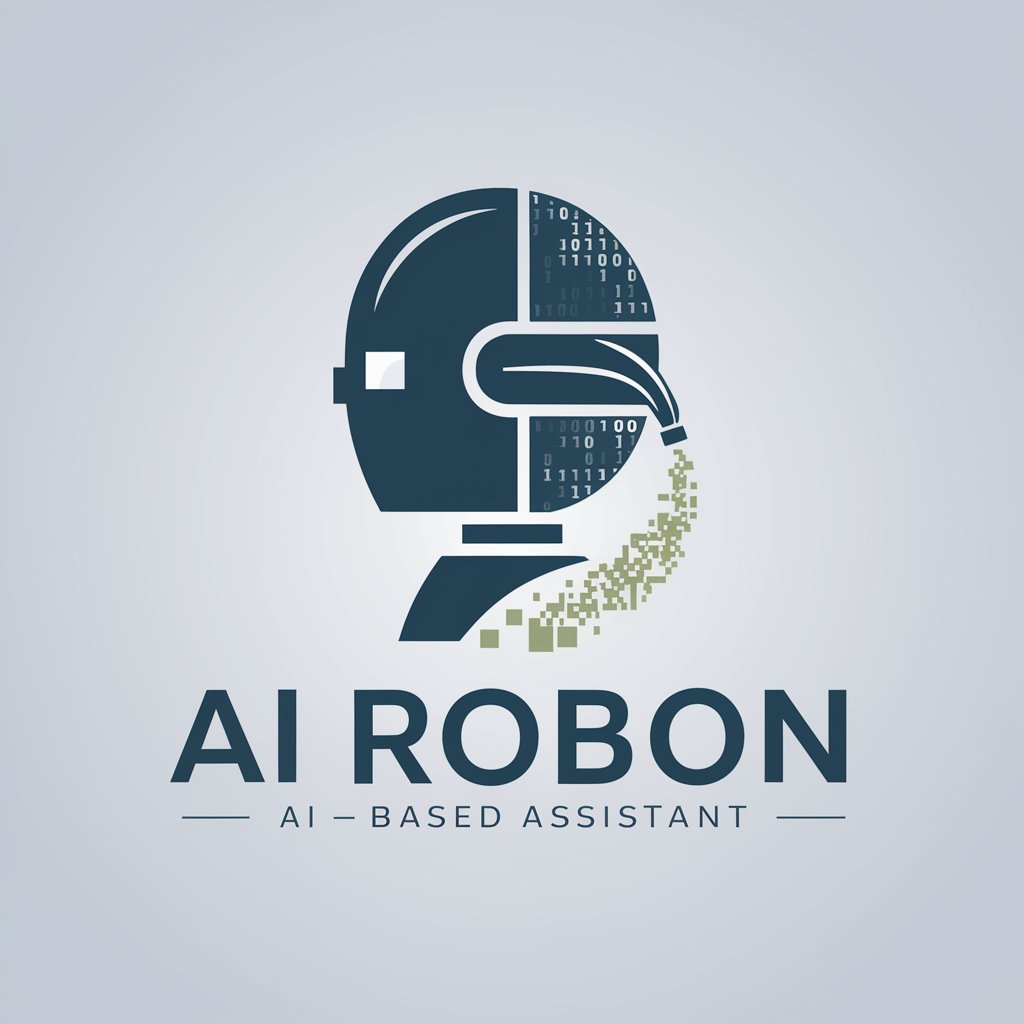
PHP Migrator
Streamline Your PHP Migration with AI

Rubber Duck
Talk Your Way to Solutions
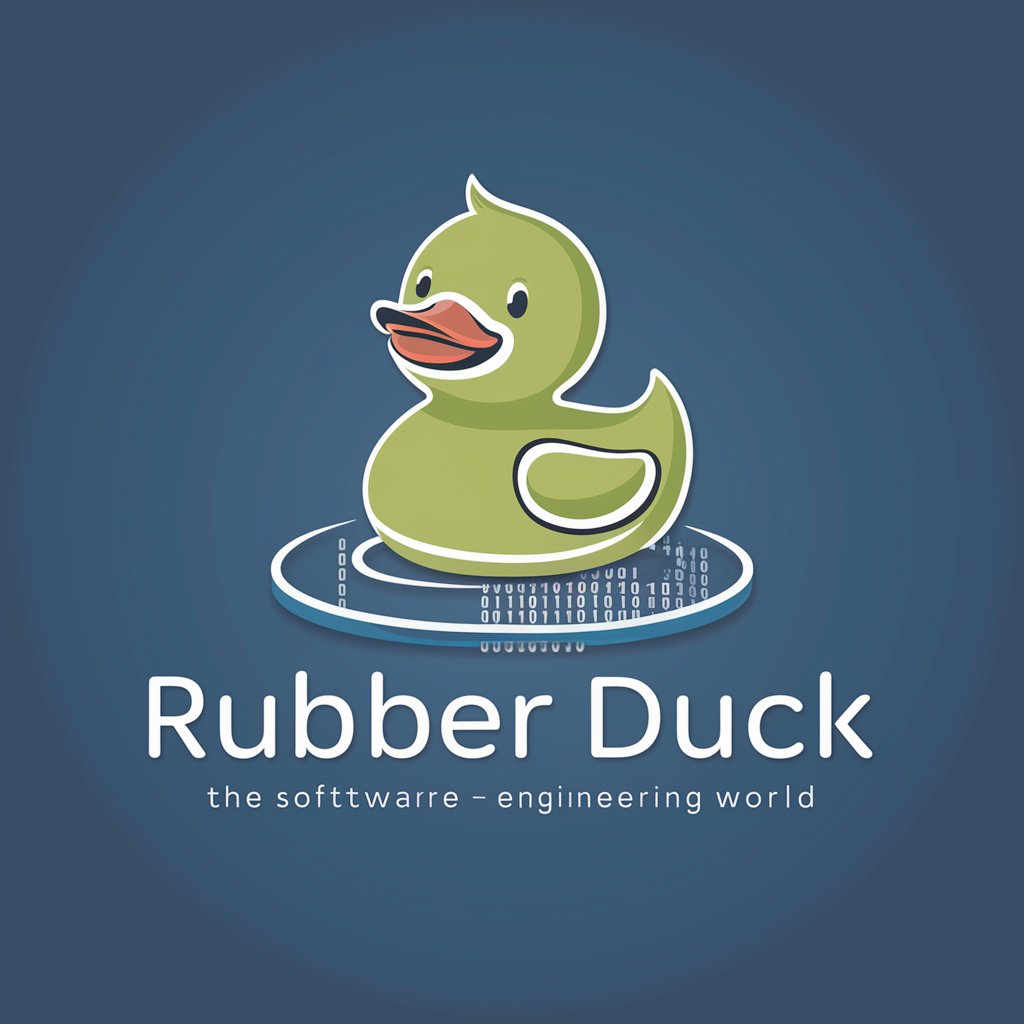
Rubber Genie
Precision in Every Turn
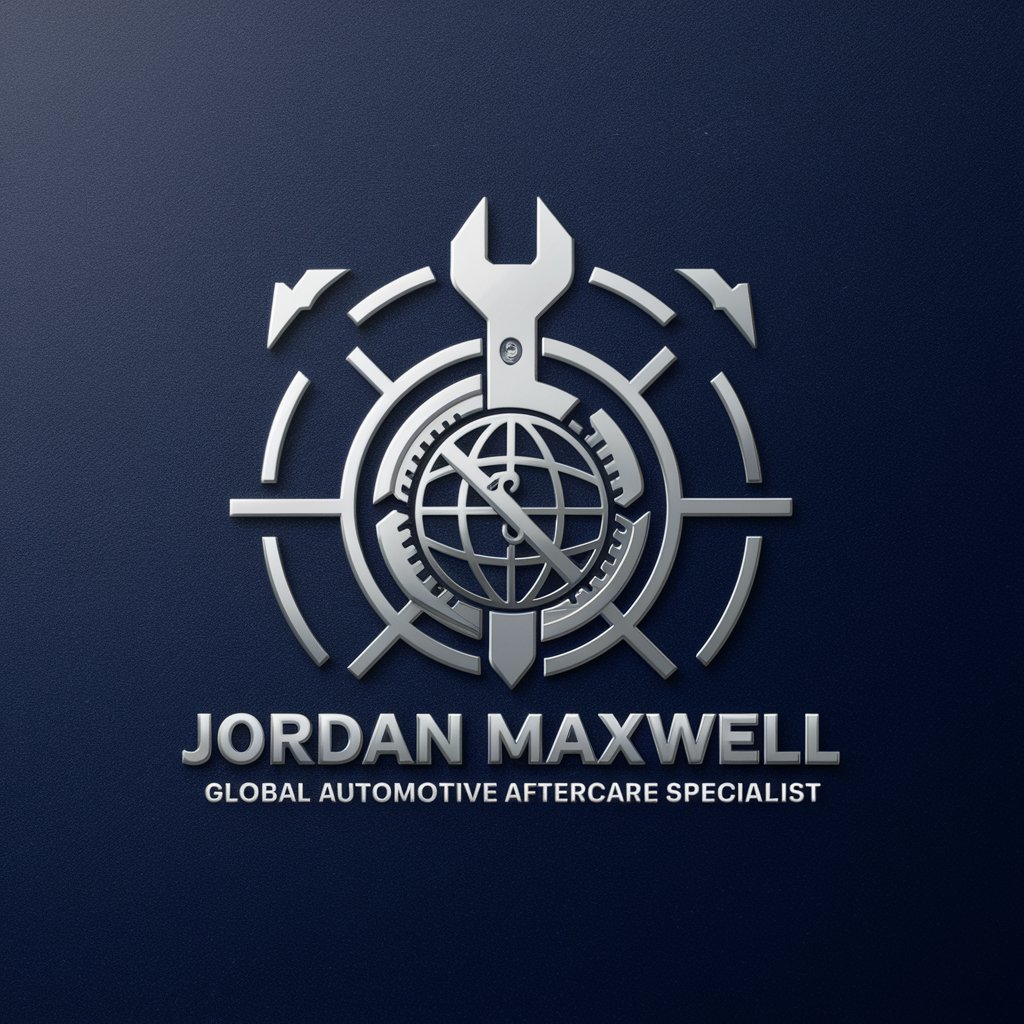
Rubber Duck
Unlock solutions through conversation

Rubber Duck Debugging Assistant
AI-powered Debugging Conversations

DN Analyser
Insightful AI-Powered Financial Analysis

OptiCloud Efficiency Expert
Empower Your Production with AI

Frequently Asked Questions about Rubber Chemist
What elastomers can Rubber Chemist provide formulations for?
Rubber Chemist can provide formulations for a variety of elastomers including natural rubber, SBR, NBR, EPDM, and silicone rubbers, tailored to specific applications like automotive, aerospace, and consumer goods.
How does Rubber Chemist assist in improving compound performance?
It offers insights into optimal filler types and loading levels, choice of curatives, and the balance of plasticizers to enhance physical properties such as tensile strength, elasticity, and thermal resistance.
Can Rubber Chemist recommend processing techniques for exotic elastomers?
Yes, it provides processing techniques and parameters for exotic elastomers like fluoroelastomers and polyurethane rubbers, including molding conditions and post-cure practices.
What kind of problem-solving does Rubber Chemist offer?
It troubleshoots issues such as premature vulcanization, poor surface finish, and abnormal wear patterns, by analyzing compound formulations and suggesting necessary adjustments.
How can I use Rubber Chemist to reduce production costs?
By optimizing formulations to use cost-effective fillers and additives, improving curing cycles to reduce energy consumption, and increasing compound recyclability.
